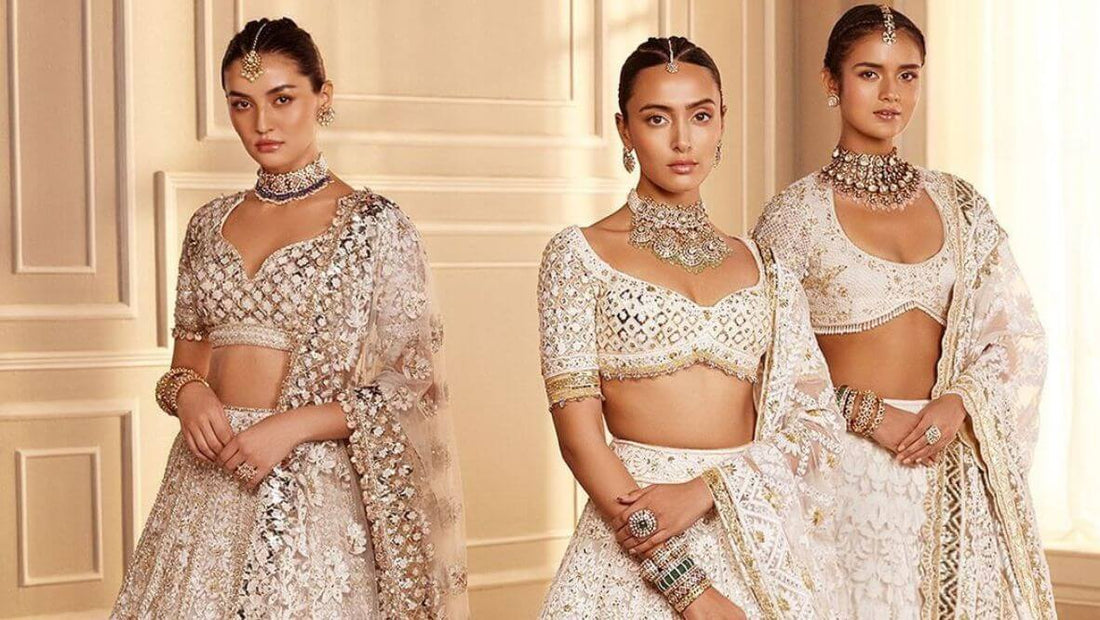Indian craftsmanship is celebrated worldwide, admired for its intricate embroidery, vibrant colors, and rich heritage that have defined the country’s fashion industry for centuries. While Indian fashion was once perceived as traditional and limited to regional aesthetics, 2024 has seen a transformation in how Indian designers are perceived globally. Modern Indian designers blend traditional artistry with contemporary design, breaking boundaries and gaining international acclaim.
From bold menswear collections to sustainable couture, these designers reflect the spirit of a new India—one that embraces heritage while innovating for the future. This dynamic fusion has pushed Indian designers into the spotlight, making a significant influence on global fashion trends.
Today, I introduce five pioneering designers who are taking Indian fashion to new heights on the international stage:
1. Suket Dhir: Modernizing Menswear with Indian Craftsmanship
Suket Dhir is a trailblazer in contemporary menswear, combining India’s artisanal techniques with global minimalism. Dhir’s collections showcase handwoven textiles and unique fabric treatments, inspired by the simplicity of traditional Indian garments and tailored for the modern man. His recent collections are marked by airy fabrics, understated tones, and a refined aesthetic, appealing to men who value subtle elegance. Dhir’s designs have attracted global attention and are redefining Indian menswear on the international stage.
2. Kshitij Jalori: Reviving Indian Art Through Fabric
Kshitij Jalori is a young designer making a name for himself with intricate jacquard fabrics and vibrant prints inspired by Indian art and architecture. His work highlights historical themes through a contemporary lens, and his recent collection draws on Mughal motifs, creating pieces that are as much art as fashion. Jalori’s designs cater to those who appreciate India’s visual heritage, making them ideal for international buyers who seek uniqueness combined with a story.
3. Amit Aggarwal: Sustainable Couture with a Futuristic Touch
Amit Aggarwal is celebrated for his avant-garde approach to Indian couture. Using recycled materials and intricate polymer details, his designs are futuristic yet unmistakably Indian. Aggarwal's commitment to sustainability has made him a key player in India’s green fashion movement, and his sculptural pieces showcase innovative fabric manipulation techniques. His work has been featured at major fashion events worldwide, further establishing him as a leader in eco-conscious couture.
4. Arpita Mehta: Elevating Everyday Glamour with Indian Textiles
Arpita Mehta’s collections are known for their elegant simplicity, blending traditional Indian textiles with chic, modern silhouettes. Mehta’s aesthetic is feminine and accessible, making her brand a go-to for those seeking sophisticated, everyday glamour. Her designs showcase intricate mirror work and delicate embroidery, bridging the gap between ethnic wear and contemporary style. Arpita’s accessible luxury is resonating with a global audience, especially among younger buyers.
5. Bodice by Ruchika Sachdeva: Minimalism Meets Artisanal Techniques
Ruchika Sachdeva’s brand, Bodice, merges minimalist aesthetics with traditional Indian craftsmanship. Known for her sustainable approach and thoughtful design, Ruchika uses artisanal techniques and modern cuts, presenting a slow-fashion ethos that appeals globally. Bodice has gained international recognition, and Ruchika’s recent Woolmark Prize win underscores her position as a leader in sustainable, modern Indian fashion. Her collections resonate with audiences looking for understated luxury with a sustainable edge.
Outlook for 2025: The Future of Indian Designers in Fashion
As we move into 2025, Indian designers are set to play an even more prominent role on the global fashion scene. With rising interest in sustainable and ethically-produced garments, the demand for India’s artisanal techniques and eco-friendly fashion is expected to grow. The new wave of designers, with their innovative blend of heritage and modern aesthetics, positions India as a global hub for fashion that respects tradition while leading in innovation.
In 2025, expect to see more collaborations between Indian designers and international brands, as well as increased representation of Indian designers in major fashion events. With their unique fusion of Indian textiles, modern cuts, and sustainable practices, these designers are defining the future of "Indian designers fashion" and setting new global standards for creativity and craftsmanship.

